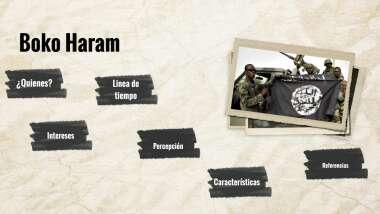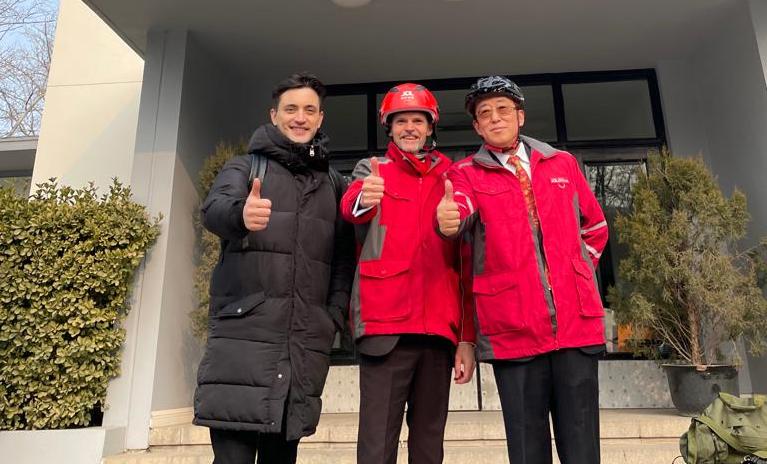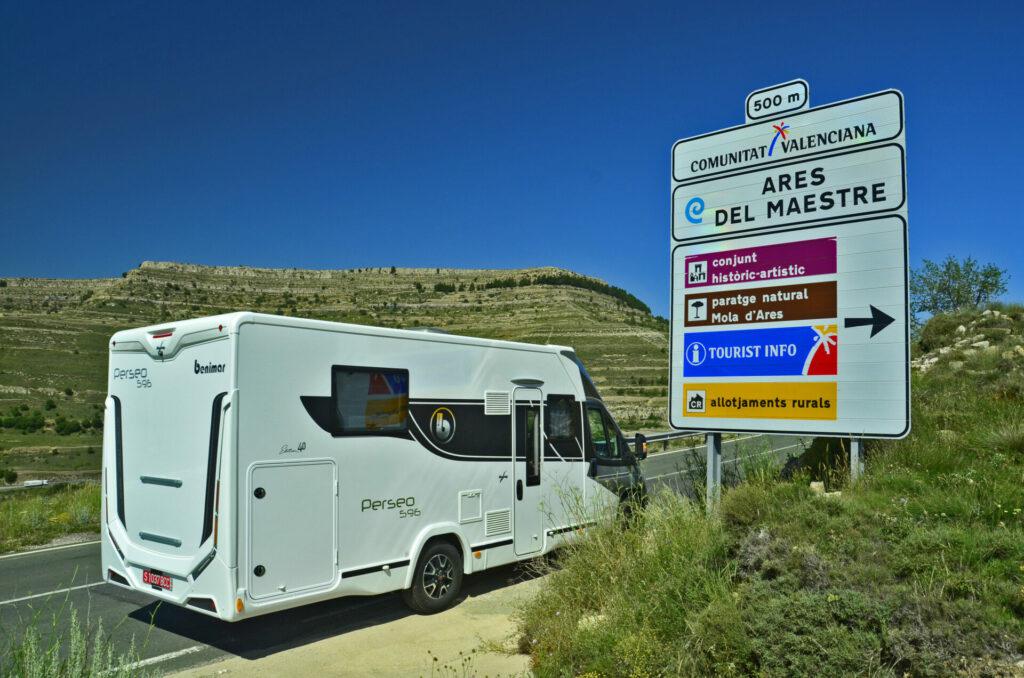Home → luxury bag → Boko Haram: facts an...
Boko Haram: facts and timeline of the African terrorist organization
(CNN) -- Boko Haram is a militant Islamic group operating from Nigeria whose purpose is to institute Sharia, or Islamic law.
Acts:
In the local Hausa dialect, Boko Haram means "Western education is prohibited."
The group also calls itself Jama'atu Ahlis Sunna Lidda'awati Wal-Jihad, which means "People Engaged in the Propagation of the Teachings and Jihad of the Prophet."
Boko Haram militants mostly inhabit areas in the northern states of Nigeria, specifically Yobe, Kano, Bauchi, Borno and Kaduna.
Boko Haram was originally called the Nigerian Taliban, due to its religious similarities with the Taliban.
Boko Haram does not engage in Nigeria's political system due to its adherence to a fundamentalist form of Islam, which prohibits participation unless the system is based on Sharia, or Islamic law.
Timeline:
2002 - The group, which may have existed since the late 1990s, organizes under Muslim cleric Mohammed Yusuf. It is centered on Maiduguri, the capital of the northeastern state of Borno.
December 2003 - The first known Boko Haram attack includes approximately 200 militants attacking multiple police stations in Yobe state, near the Niger border.
July 2009 - The Boko Haram uprising begins in Bauchi and spreads to Borno, Kano and Yobe states. The militant group kills dozens of policemen. A joint military force responds to the attack, leaving more than 700 Boko Haram members dead and their operational mosque destroyed. The uprising ends when the police capture Yusuf. His deputy, Abubakar Shekau, is reportedly killed in the uprising. Yusuf later dies in police custody. Police say he was shot during an escape attempt, but Boko Haram say it was an extrajudicial execution.
July 2010 - Boko Haram releases a video in which Shekau, a deputy for Yusuf who was reportedly killed the previous year, claims to be the group's leader.
September 7, 2010 - In Bauchi state, 50 Boko Haram militants attack a prison, killing five people and freeing more than 700 inmates.
May 29, 2011 – On the day of Goodluck Jonathan's inauguration as Nigerian president, Boko Haram detonates three improvised explosive devices near a military barracks in the town of Bauchi. At least 10 people are killed in the attack.
August 26, 2011 - Boko Haram attacks the United Nations compound in Abuja, the capital of Nigeria. A car bomb kills 23 people and leaves more than 75 injured.
November 4, 2011- More than 100 people are killed in multiple attacks in Yobo, Damaturu and Borno states. Boko Haram militants use improvised explosives to target security forces, their offices, markets and 11 churches.
January 2012 - A newly formed Boko Haram splinter group known as the Ansaru announces Abu Usmatul Al-Ansari as its leader.
January 20, 2012 - More than 200 people are killed when Boko Haram carries out coordinated attacks against police, military, a prison and other targets in the city of Kano, in the state of the same name.
February 19, 2013 - Militants claiming to be Boko Haram kidnap a French family of seven in a national park in northern Cameroon. However, affiliation with Boko Haram cannot be verified. The family is later released.
April 2013-Goodluck Jonathan claims he appointed a team to look into a possible amnesty for Islamist militants. Shekau responds in an audio statement: "Surprisingly, the Nigerian government is talking about granting us amnesty. What wrong have we done? On the contrary, it is we who must forgive him."
April 19, 2013 - Boko Haram battles with multinational security forces from Niger, Nigeria and Chad in the city of Baga, Borno state, leaving nearly 200 people dead, including many civilians. Shekau releases a video in May saying Boko Haram is not responsible for civilian deaths.

June 4, 2013 - Jonathan approves the banning of Boko Haram and the Splinter Ansaru group as terrorist organizations.
June 2013 – Boko Haram attacks churches in multiple states on three Sundays in a row, leaving more than 50 people dead.
August 14, 2013 - The Nigerian Ministry of Defense announces the death of Boko Haram's second-in-command, Momodu Baba (known as Abu Saad).
August 19, 2013 - Nigeria's chief army spokesman claims that Shekau may have been killed after an attack on June 30, but this version is never verified.
September 17, 2013 - Boko Haram gunmen dress in military uniforms and carry out a fake checkpoint near Benisheik in Borno, burning vehicles and executing travellers. At least 143 people die.
September 25, 2013-A man claiming to be Shekau appears in a video and says that he is alive and well. However, his identity is not verified.
November 13, 2013 - The US State Department adds Boko Haram and Ansaru to its list of terrorist organizations.
Jan 26, 2014 - At least 45 people are killed in a market in Kawuri, Borno, after Boko Haram militants shoot.
April 14, 2014 - Boko Haram militants abduct approximately 276 teenagers from a Chibok boarding school in Borno. Authorities say some of the girls were able to escape. The kidnapping sparks global outrage and a social media campaign called #BringBackOurGirls ("Give us back our girls").
May 5, 2014 - In a video statement, a man claiming to be Shekau says: "I kidnapped your girls. I will sell them in the market, by Allah... there is a market to sell humans. Allah says I should sell them, He orders me to sell, I will sell women, I sell women."
May 13, 2014 - Hundreds of Boko Haram militants storm three villages in Borno state. The villagers resist and kill more than 200 Boko Haram fighters.
May 20, 2014 - Explosions in the city of Jos kill 118 people in a market. Nigerian authorities describe them as "terrorist activities" but decline to speculate on who might be responsible.
May 21, 2014 - The White House announces that the United States has sent 80 troops to Chad to help search for the kidnapped girls.
May 22, 2014 - The UN Security Council imposes sanctions on Boko Haram.
June 3-4, 2014 - Hundreds of people are killed in raids by Islamic militants from Boko Haram in Borno state, with some sources putting the death toll at between 400 and 500.
June 7-8, 2014 - Suspected Boko Haram militants kidnap at least 20 young women over a weekend in the northeastern Nigerian village of Garkin Fulani, eight kilometers from a town where more than 200 girls were abducted previously two months ago.
June 18-22, 2014 - Boko Haram militants hold the villagers of Kummabza village (Borno state, northeast Nigeria) hostage for four days. They kidnap more than 60 women, including children, and kill 30 men in the attack.
July 7, 2014 - Sources say that at least 57 girls, abducted by Boko Haram last month from Kummabza village in the northern state of Borno, have escaped their captors and returned to their village. Boko Haram is estimated to still be holding some 200 students kidnapped on April 14 from a boarding school in Chibok city.
July 17-20, 2014 - Boko Haram attacks the Nigerian city of Damboa. By the end of the raid, 66 residents have been killed and more than 15,000 have fled.
October 16, 2014 - The Nigerian government announces that it has reached a ceasefire agreement with the Islamist terror group that includes the promised release of more than 200 kidnapped girls.
November 1, 2014 - In a video, the leader of the group denies the Nigerian government's announcement of a ceasefire.
January 3, 2015 - A multi-day raid begins, with hundreds of Boko Haram gunmen seizing the city of Baga and neighboring towns in northern Nigeria, as well as a multinational military base, leaving bodies scattered everywhere. It is estimated that there were about 2,000 dead.
March 2, 2015 - Boko Haram releases a video showing the alleged beheadings of two men suspected of being spies.
March 7, 2015 - In a purported audio message from Shekau, Boko Haram pledges allegiance to ISIS, the Islamic militant group that controls areas of Iraq and Syria. Boko Haram is called "Wilayat Gharb Afriqiyya" or "Wilayat Gharb Afriqiyyah" which means Islamic State of West Africa.
March 12, 2015 - In an audio message purportedly from an ISIS spokesperson, the group announces that the caliphate has expanded into West Africa and that ISIS leader Abu Bakr al-Baghdadi has accepted the pledge of allegiance from Boko Haram. On the same day, ISIS blows up the Iraqi Army headquarters north of Ramadi, killing at least 40 Iraqi soldiers.
LEE: The war against ISIS becomes global
25-26 April 2015 - The decomposed bodies of at least 400 men, women and children are found in shallow mass graves and on the streets of Damasak, northeastern Nigeria. Following a joint Nigerian and Chadian military operation, the city it was recently freed from Boko Haram, which took over the city in November.
April 28-April 30, 2015 - Nigerian troops rescue some 450 women and girls in the Sambisa Forest, during a military operation focused on destroying Boko Haram camps and rescuing civilians. According to the military, none of those rescued were identified as the Chibok schoolgirls kidnapped last April.
July 1, 2015 - Boko Haram militants attack three villages in northeastern Nigeria's Borno state, killing at least 145 people, according to witnesses.
September 3, 2015 - An estimated 30 people were killed and 145 injured after Boko Haram militants attacked a crowded market in Kerawa, Cameroon, and an infirmary near a Cameroonian military camp, according to Cameroonian military spokesman Colonel Didier Badjeck.
Sep 23, 2015 - 240 women and children are rescued and 43 Boko Haram militants are arrested following Nigerian army raids on the terror group's military camps.
February 2016 - Boko Haram militants attack two towns in northeastern Nigeria, killing at least 30 people. In another attack, two suicide bombers killed 58 people in a Nigerian refugee camp. A suspect in the camp attack tells authorities that she and the two suicide bombers were sent by Boko Haram.
April 14, 2016 - CNN releases video of some of the kidnapped teenage girls from Chibok that their captors sent to negotiators as "proof of life."
May 17, 2016 - Amina Ali Nkeki, one of more than 200 Chibok schoolgirls kidnapped by Boko Haram, is the first to be released after two years in captivity. The Nigerian military says she was rescued by her troops, but a witness tells CNN the girl left the Sambisa Forest in the northeast of the country along with her son and a man.
August 3, 2016 - ISIS al-Naba publication says that Sheikh Abu Musab al-Barnawi is the new leader of Boko Haram. A Boko Haram insider confirms to CNN that Barnawi, the son of the group's founder, who was killed by Nigerian security forces in 2009, is indeed the new leader.
August 14, 2016 - Boko Haram releases a video of some of the girls kidnapped in April 2014 and demands the surrender of Boko Haram fighters in exchange for the girls.
October 13, 2016 - Boko Haram militants hand over 21 students to the authorities after a series of negotiations with the Nigerian government. It is the first mass rendition of any of the more than 200 girls and women kidnapped in April 2014.
November 5, 2016-A student from Chibok, along with her 10-month-old son, is found by the Nigerian army.
January 5, 2017-The Nigerian military says another missing Chibok girl and her six-month-old baby were found during an operation to arrest suspected Boko Haram terrorists.
January 17, 2017 - Dozens of people are killed when a Nigerian warplane mistakenly bombs a camp for internally displaced persons, during an operation in Rann against Boko Haram militants, according to Nigerian officials and the Red Cross. The Nigerian government does not provide an official death toll, but the aid group Doctors Without Borders says "some 90" people died.
May 6, 2017 - Eighty-two Chibok schoolgirls are released after negotiations between Boko Haram and the Nigerian government.
February 19, 2018 - A Boko Haram faction storms the Government Women's Science and Technology College in Dapchi city, northeastern Nigeria, kidnapping 110 students from the college.
March 21, 2018-Information and Culture Minister Alhaji Lai Mohammed says that 104 of the girls kidnapped from his boarding school on February 19 have been released and returned to his hometown of Dapchi. Six of the Dapchi schoolgirls are still missing. Later, Mohammed also clarifies that two other children who were kidnapped, "who are not students at the school", were also released.
April 13, 2018 - Unicef says Boko Haram has kidnapped more than 1,000 children in northeast Nigeria since 2013.
May 7, 2018 - The Nigerian military says it has rescued more than 1,000 Boko Haram captives, mainly women and children, as well as some youths who were forced to become Boko Haram fighters, in Borno state. The operation was carried out together with Cameroonian and Nigerian troops from the Multinational Joint Task Force (MNJTF) and rescued hostages from Malamkari, Amchaka, Walasa and Gora villages, all from the Bama Local Government Area.









